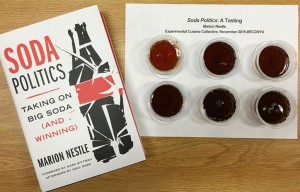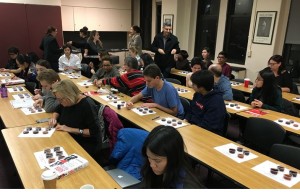A retraction and apology
The Journal of Public Health Policy (JPHP) will soon announce the retraction of a Viewpoint—an opinion piece—I co-authored with a Guatemalan physician, Dr. Joaquin Barnoya, “The food industry and conflicts of interest in nutrition research: A Latin American perspective.” Because of factual errors in the piece, and in response to valid objections about the errors from its subjects, they and we requested its retraction and JPHP is doing so.
I believe it is useful to explain how this happened. In late summer, Dr. Barnoya brought to my attention an advertorial, a sponsored news account, published in el Periódico and other Guatemalan newspapers announcing an alliance among the Central American Bottling Corporation (cbc), the largest beverage distributor in Guatemala and bottler for PepsiCo; the Guatemala-based Institute of Nutrition of Central America and Panama (INCAP); and the U.S.-based Shalom Christian Foundation to distribute a supplemental food product, Mani+, to chronically malnourished children in rural areas (here is a translation of the advertorial). Mani+ is a sweetened, peanut-based, nutrient-fortified supplemental food made from local ingredients in Guatemala, used to prevent malnutrition in young children. The advertorial displayed a photograph of the directors of the three organizations holding the agreement. It also displayed statements from all three directors emphasizing the alliance’s importance in addressing childhood malnutrition.
As readers of this blog should know, I have long been concerned about the conflicts of interest that arise when food companies—especially soda companies—enter into alliances with public health organizations. The New York Times made the consequences of such alliances clear in its recent revelations of Coca-Cola sponsorship of the Global Energy Balance Network and the fallout from those revelations. The announced alliance between cbc and INCAP raises similar concerns, particularly in the light of more general food industry partnerships with research and health institutions in Latin America. Our intention in writing the Viewpoint was to question the appropriateness of this alliance, as well as of other such partnerships and alliances.
We should, however, have exercised more care. Shortly after publication of the Viewpoint, Carolina Siu Bermúdez, the director of INCAP who appears in the advertorial, wrote to object that our piece incorrectly implied a financial relationship with cbc, and that Dr. Barnoya had failed to disclose that INCAP paid a substantial portion of his salary via a grant from yet another organization. We also received letters from Dr. Edward Fischer, the founder of NutriPlus/Mani+, Professor of Anthropology and Director of the Center for Latin American Studies at Vanderbilt University, objecting to our statement that the alliance was responsible for manufacturing (rather than just distributing) the product. Both asked us to retract the Viewpoint.
Upon investigation, we realized their objections had merit. Indeed, further investigation by us and by the editors of the JPHP exposed additional errors. Together, these include the following clarifications and corrections:
- The alliance is involved only in the distribution of Mani+, not its manufacture (as we had asserted).
- The actual nature of the alliance between cbc, INCAP, and the Shalom Christian Foundation—who does what—is, in fact, unclear. The Viewpoint should have characterized the relationship with less certainty and specified that cbc has no financial relationship with either INCAP or the Foundation.
- Dr. Barnoya should have disclosed his financial relationship with INCAP, and I should have insisted that he do so.
- The Viewpoint was triggered by the advertorial, and we should have made this connection more explicit.
- The reference in the Viewpoint to the advertorial is incorrect. It is listed as (2015) cbc co. Unidos contra la desnutricion. INCAP, cbc y Fundacion Crisitiana Shalom Firman Convenio 23(July): 9. The correct reference is Alianza Contra la Desnutricion. elPeriódico. July 23, 2015;Advertorial: 9.
To correct and clarify these issues, we would need to revise the Viewpoint. Doing so, however, is not possible once a paper is published. That left us no choice but to request a retraction, which I believe is the right course of action in this situation.
In my books and other writing, I try as hard as I can to be precise and accurate. This incident is a lapse that I regret deeply, for which I take responsibility, and for which I apologize to Carolina Siu Bermúdez, to Dr. Fischer, and to my readers. I also apologize to Phyllis Freeman and Anthony Robbins, the editors of JPHP, and to Lucy Wheeler of Palgrave, who have set an exemplary standard of ethics and integrity throughout these investigations and discussions.
As for lessons learned: Although I fully intend to continue to write critically about alliances between food companies and public health organizations, I also intend to use this experience to recommit myself to accountability and to diligence in checking and double-checking facts and disclosures going forward. Again, my deepest apologies.
Addition, December 14: The actual retraction notice is published here. The discussion on Retraction Watch is here.




